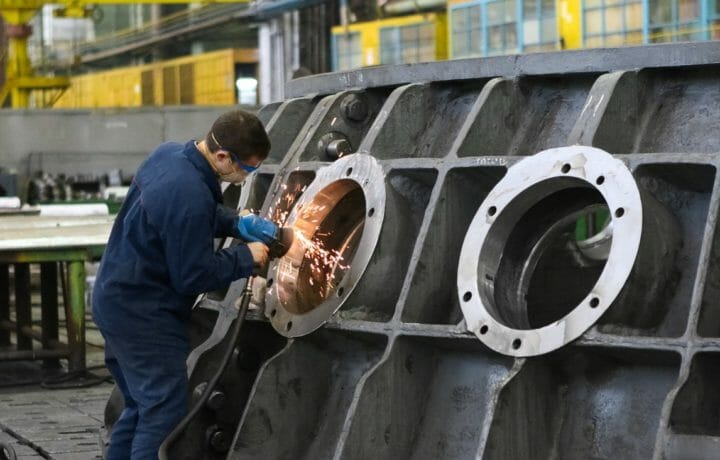America has a skilled trades shortage that is projected to continue to grow. In April, The Hill, reported that:
- Almost two million manufacturing jobs will remain unfilled
- There will be an estimated shortage of 550,000 plumbers
- 30% of electricians in the National Electric Contractors Association are projected to retire in the next few years
top 10 trades for veterans
However, with 200,000 military members getting out of the military each year, veterans could make an impact today on these skilled trades shortages and even turn the tide within the next decade. It is interesting to note that some trades marry up better with the experience and training that veterans bring to the table. In fact, here are the top 10 trades* and why they are a good fit for veterans.
1. Electrician
Veterans with experience in electrical systems find this trade appealing due to its demand and the technical skills required, which often align with their military training.
- Median Pay: $61,590
- Projected Job Growth: 6% (Faster than average)
- Projected Openings Per Year: 73,500
2. HVAC Technician
Working in the heating, ventilation, and air conditioning (HVAC) field requires a high mechanical aptitude, something many veterans possess from their military training and experience.
- Median Pay: $53,300
- Projected Job Growth: 6% (Faster than average)
- Projected Openings Per Year: 37,700
3. Welder
Welding is a high-demand trade where precision and attention to detail are crucial, skills that many veterans have honed during their service.
- Median Pay: $48,940
- Projected Job Growth: 1% (Little to no change)
- Projected Openings Per Year: 42,600
4. Plumber
Plumbing is another trade with consistent demand. Veterans who worked in facilities management or related fields might find this transition smooth.
- Median Pay: $61,550
- Projected Job Growth: 2% (As fast as average)
- Projected Openings Per Year: 42,600
5. Carpenter
Carpentry offers opportunities for veterans to use their hands-on skills in building and construction, areas where they may have prior experience or training.
- Median Pay: $56,350
- Projected Job Growth:1% (Little to no change)
- Projected Openings Per Year: 79,500
6. Automotive Technician
Veterans who worked with military vehicles often transition into automotive repair and maintenance, where they can apply their mechanical knowledge. Even though the vehicles are different, the basic jobs are the same.
- Median Pay: $47,770
- Projected Job Growth:2% (As fast as average)
- Projected Openings Per Year: 67,700
7. Heavy Equipment Operator
Veterans who operated machinery or vehicles in the military may find civilian roles in construction or transportation operating heavy equipment very familiar and satisfying.
- Median Pay: $55,270
- Projected Job Growth: 3% (As fast as average)
- Projected Openings Per Year: 42,300
8. Construction Manager
Leadership experience in the military can translate well into construction management, overseeing projects and teams.
- Median Pay: $104,900
- Projected Job Growth: 5% (Faster than average)
- Projected Openings Per Year: 38,700
9. Machinist
Precision machining is a trade that aligns with the technical skills veterans may have acquired, particularly those with engineering or mechanical backgrounds.
- Median Pay: $53,180
- Projected Job Growth: 0% Little to no change)
- Projected Openings Per Year: 38.200
10. Truck Driver
Veterans with experience driving large vehicles or operating in logistics often transition into truck driving, a trade with high demand and good earning potential.
- Median Pay: $54,320
- Projected Job Growth: 4% (A fast as average)
- Projected Openings Per Year: 241,200
Retirement, Military Transitions and Future Outlooks
Don’t let the low projected growth outlook percentages in some of the fields scare you. As noted in the projected openings per year, there are still a lot of people required in these fields, just to replace those leaving due to retirement or seeking jobs in other fields.
Some of the skills learned in the military transition over to the trades industry with very little training required. Veterans that do require training can go through the trade course of their choosing and get working in that field very quickly – most of the time in less than 2 years. And they can use the Montgomery or Post 9/11 GI Bill to pay for their training.
Or another route is to enter an apprenticeship program and learn on the job. Between what the GI Bill and employer pays, veterans can earn while they learn and come out of the apprenticeship with no education debt.
Learning a trades skill and working to help build America is a great way to not only earn a living, but to help serve your nation again.
*Data courtesy of the Bureau of Labor Statistics




